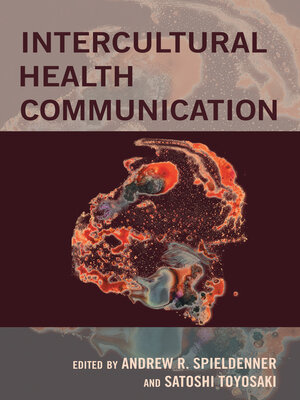
Sign up to save your library
With an OverDrive account, you can save your favorite libraries for at-a-glance information about availability. Find out more about OverDrive accounts.
Find this title in Libby, the library reading app by OverDrive.



Search for a digital library with this title
Title found at these libraries:
| Library Name | Distance |
|---|---|
| Loading... |
Intercultural Health Communication brings together the fields of health and intercultural research in new work from leading communication scholars. This book is based on two premises: neither health nor culture is a neutral concept. The authors of this collection employ critical, qualitative, and interpretive research methodologies in order to engage the political and intersectional nature of health and culture simultaneously. Changing notions of healthy behaviors (or ill health) are not just a matter of knowledge; they live inside discourses about the body, aesthetics, science, and the world. We see this book as an important step towards developing a more transnational view of health communication. Intercultural Health Communication ties together the critical public health with critical intercultural communication. Through these connections, the authors engage the health research in, amongst others: HIV, cancer, trauma, celiac disease, radioactive pollution, food politics, and prenatal care. Intercultural Health Communication emerges from a broad need to address connections and challenges to incorporating health communication with intercultural communication approaches. After compiling this book, we see ready connections to public health, global studies, gender and sexuality studies and ethnic studies. In this day and age, nation states have to be considered within the broader frameworks of globalization, transnationalism and global health. We recognize that the contemporary health issues require an understanding of culture as integral towards eliminating health disparities.







